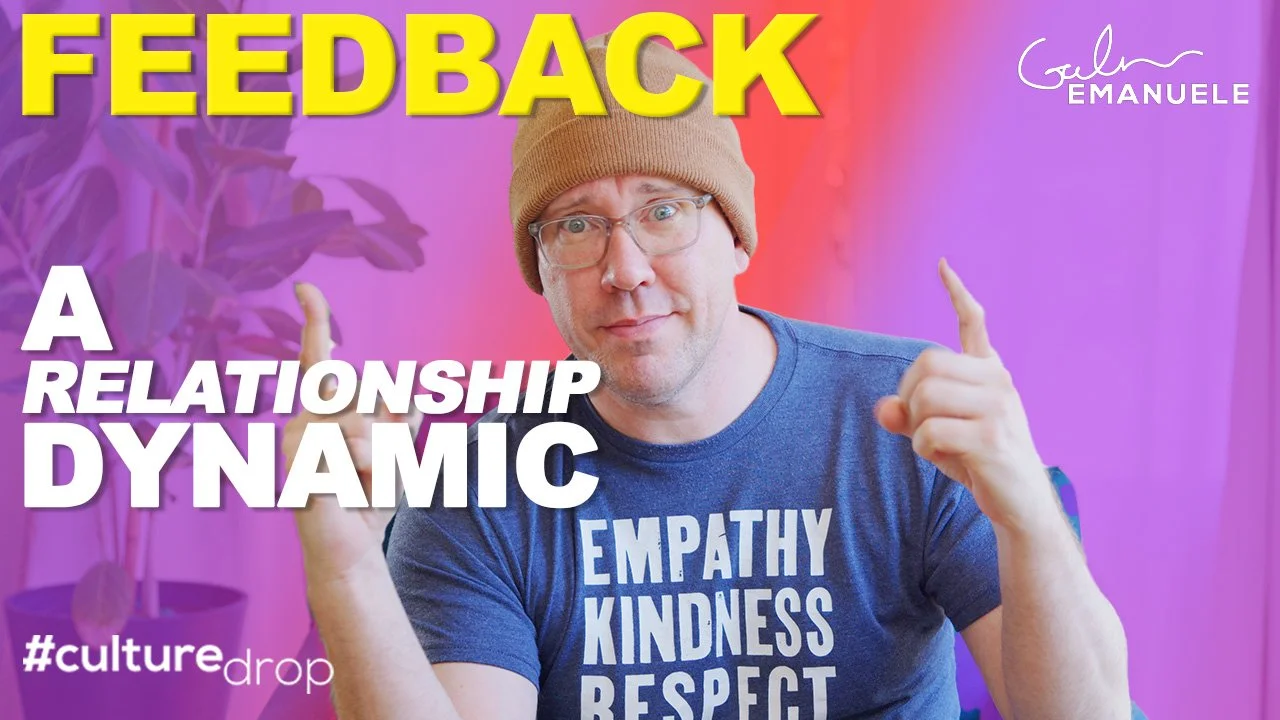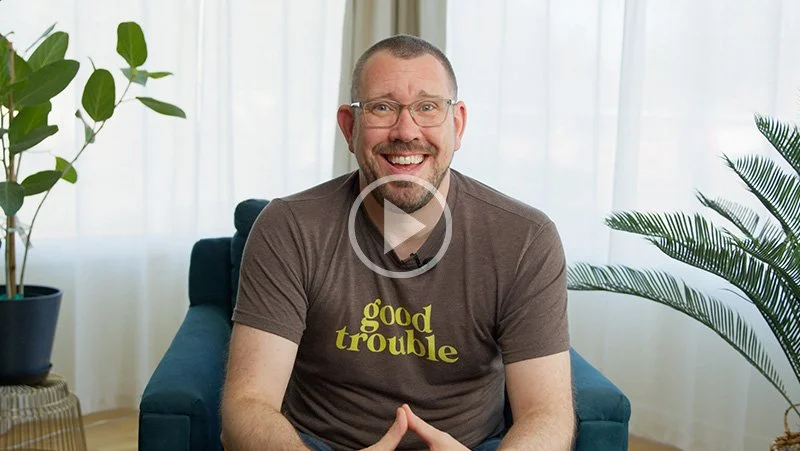Feedback as a Relationship Dynamic
Welcome to the #culturedrop. Every Tuesday, Galen Emanuele emails tools to advance leadership skills, team culture, and personal growth. No spam, just great content. Sign up now to get it in your inbox.
Shifting your relationship with feedback.
In many workplaces, feedback is merely seen as an event — a formal conversation where one person gives criticism or guidance to another. It’s most commonly associated with performance reviews, evaluations, and moments of anxiety. It can be stressful and uncomfortable, and generally lives up to it’s negative reputation.
But feedback doesn’t have to be an intimidating, painful thing. A simple shift in how it’s understood goes a long way to foster healthier work environments, reduce fear, and make feedback a more positive experience.
Stop seeing feedback as just an event.
“if we can make a shift to view feedback as a relationship dynamic verses an event designed to deliver criticism, it becomes much less intimidating and far more useful.”
Too often, feedback is seen as a singular event where you’re either giving or receiving criticism, typically about job performance. And as a result, of course people learn to fear and loathe it.
However, if we can make a shift to view feedback as a relationship dynamic verses an event designed to deliver criticism, it becomes much less intimidating and far more useful.
A relationship, not a transaction.
Whether you’re colleagues, you report to someone, or you're a manager yourself, an extremely helpful shift is to see feedback as a continuous dynamic of the relationship rather than a one-off event.
“Making feedback part of the ongoing dialogue allows for open and constructive conversations. It creates a safer environment for both sides, where difficult topics can be addressed without fear of defensiveness or big reactions.”
When both parties have that understanding then feedback just becomes a natural element of interactions. Checking in regularly, talking about what’s going well, what could be improved, and having straightforward, honest conversations about our experiences with each other.
Making feedback part of the ongoing dialogue allows for open and constructive conversations. It creates a safer environment for both sides, where difficult topics can be addressed without fear of defensiveness or big reactions.
Healthy feedback builds trust.
Creating a feedback-friendly dynamic builds and sustains trust. If feedback is a continual part of the relationship, it naturally pushes a mutual agreement that you’ll both receive it in a healthy, constructive way.
“If feedback is a continual part of the relationship, it naturally pushes a mutual agreement that you’ll both receive it in a healthy, constructive way.”
Regardless of if you’re the one giving or receiving feedback, having the focus be on growth and improvement, including improving the relationship. This trust allows for a more open environment where more honest things can be shared and feedback can flow freely without causing anxiety.
Whether you’re a manager, team member, having proactive conversations and establishing that feedback won’t just be exchanged in formal events, but will be a natural, ongoing dynamic of the relationship can drastically improve communication, collaboration, and performance. The shift will help you and your team navigate difficult conversations with less stress, and is a critical component of building a healthy, productive team culture.
A better environment for relationships.
Stop seeing feedback as a daunting event, but instead as an ongoing element of the relationship between two people. When this happens it creates an environment where everyone feels more heard, valued, and empowered to share their experiences and ultimately improve.
Related Blogs:
Want more?
This article was created by Galen Emanuele for the #culturedrop. Free leadership and team culture content in less than 5 minutes a week. Check out the rest of this month's content and subscribe to the Culture Drop at https://bit.ly/culturedrop








